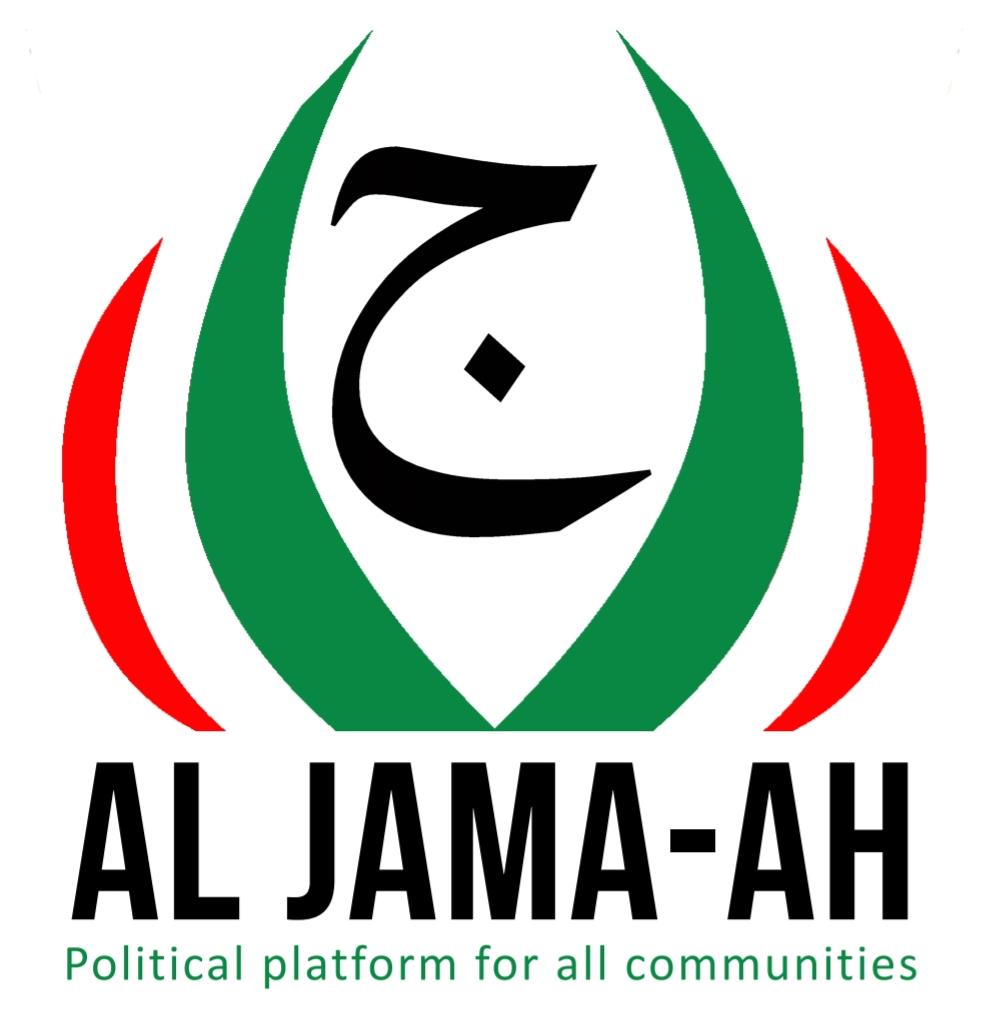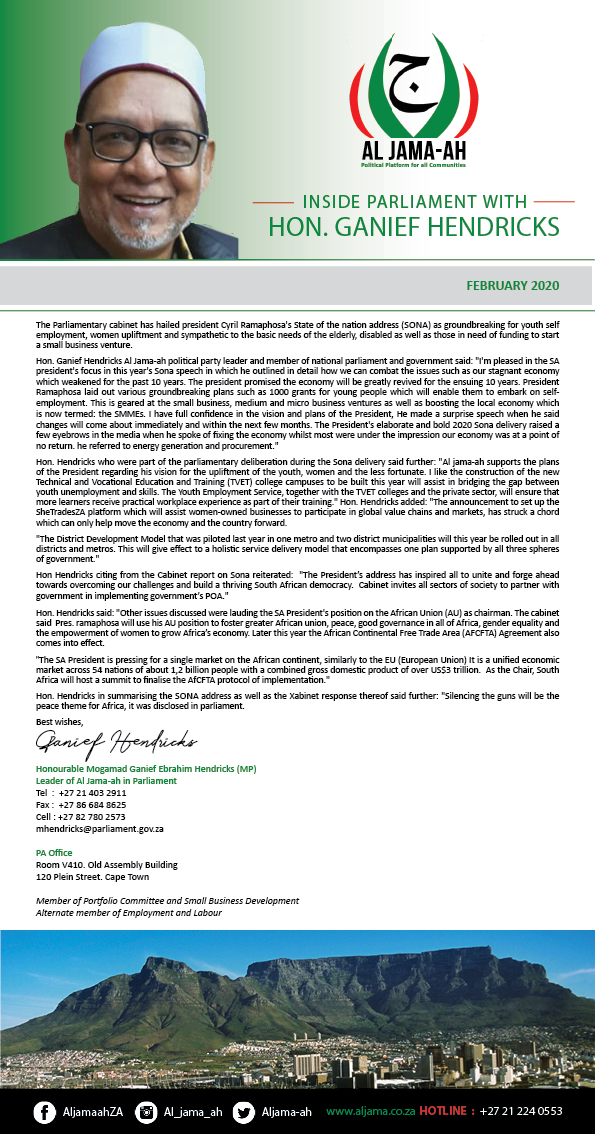Al Jama-ah and the Chief Justice’s Appointment for South Africa
Since Al Jama-ah has been approached to participate in the Justice Service Commission process in order to share a few salient thoughts regarding the filling of the Chief Justice post for our country, permit me to point out specific issues that would add value to the appointment.
As the Party’s leader, these are my selective responses:
The Party is, by and large, very satisfied with the list of candidates who had applied; each of them hail from different socio-cultural, and political backgrounds and have different exposures to the legal system in and outside South Africa. It is indeed certain that each one brings his/her particular expertise and rich experience to such a post; and these should help build on where others (such the previous Chief Justices) have left off and fill the gaps where these appear as well as amend where they might have faltered/failed.
But while the Party acknowledges that each one might have the relevant knowledge and the necessary experience, the questions are: (a) What vision does the candidate have when he/she is appointed? (b) How does he/she see the country’s future? (c) In which way will the candidate add value to the position, and (d) upon leaving the post at the end of the candidate’s term, what legacy does he/she plan to leave behind? These are issues that should be factored in when making the final decision in appointing the candidate.
On top of these questions, the following are important; and they are:
– since the candidate possesses in-depth knowledge of our country’s legal system, what knowledge does he/she have that may bolster that post and may direct the country along an unenvious legal path continentally/globally? Which values would he/she stress while in that post – depending on his/her reply: and why these and not others?
– And how much knowledge does that candidate have as regards African Jurisprudence (AJ)? With reference to the latter, the question contains a broad concern: for example, AJ, though expansive continentally, differs from one region to another or one country to another since each of these have been influenced by the legal systems of former colonial masters. So, what knowledge has the candidate acquired that will assist him/her to play a meaningful legal role not only within SADC but in SADC and even across the continent?
The Party opines that, as a country, we are functioning on a continent and in a global village with our legal systems being tied to one another; and it is for this reason that it emphasizes the need for the candidate to not only be informed about the South African legal system but be knowledgeable of the region (as well as the continent). Legal decisions taken in our courts do, at times, have implications for other countries in our neighbourhood (that is, SADC); and the cases that our courts handle, may be of relevance to other African states; this, however, depends upon their systems and how they draw upon AJ to enhance and enrich their legal systems and practices.
Perhaps an example will help clarify and underline why the AJ, which is embedded in the notion of Ubuntu/Botho, is a critical mass of knowledge is necessary for anyone appointed in this post. If one takes the customary laws as practiced among certain Kenyan tribes (such as the Oromo or the Masai) and compare them to those practiced among Southern African tribes (example, isi-Xhosa and isi-Zulu), then the differences are stark; and these are the ones that should be considered when reaching a legal decision. Besides these, there are also tribes that follow matrilineal lines as compared to those that are patrilineal; all these fine distinctions are significant and cannot be ignored when reflecting on AJ regionally and continentally.
And alongside these points, the JSC should weigh up the person’s persona and character traits; these are important when filling that post. Some of the following traits may be considered; and they have been stressed by others too are:
– Appropriate qualifications
– Administrate well
– Armed with excellent skills
– Organize competently
– Be influential
– Be Judicious
– Be a Thought Leader
– Bring about Transformative Justice
– Judge cautiously
– Display Impartiality
– Demonstrate intellectual ability
– Exude Confidence


